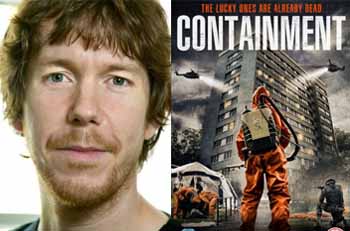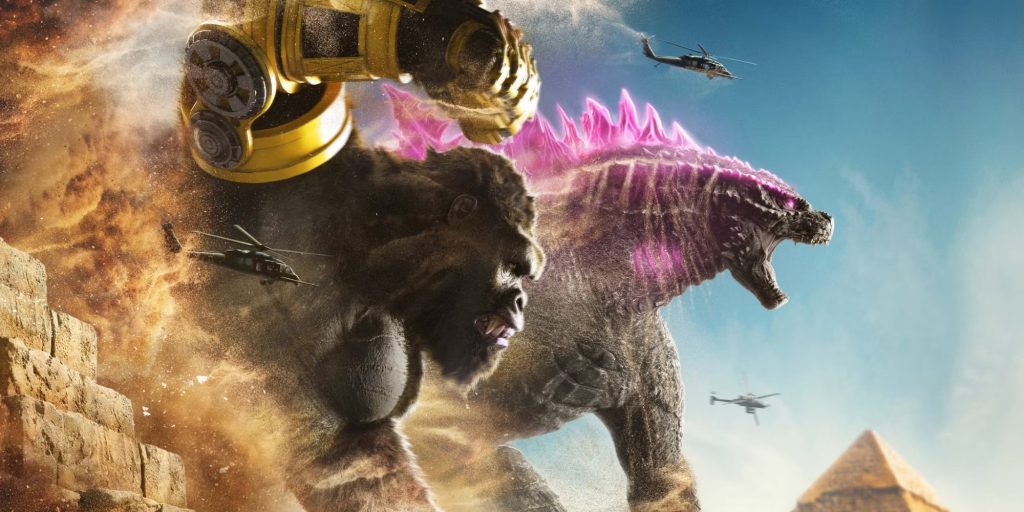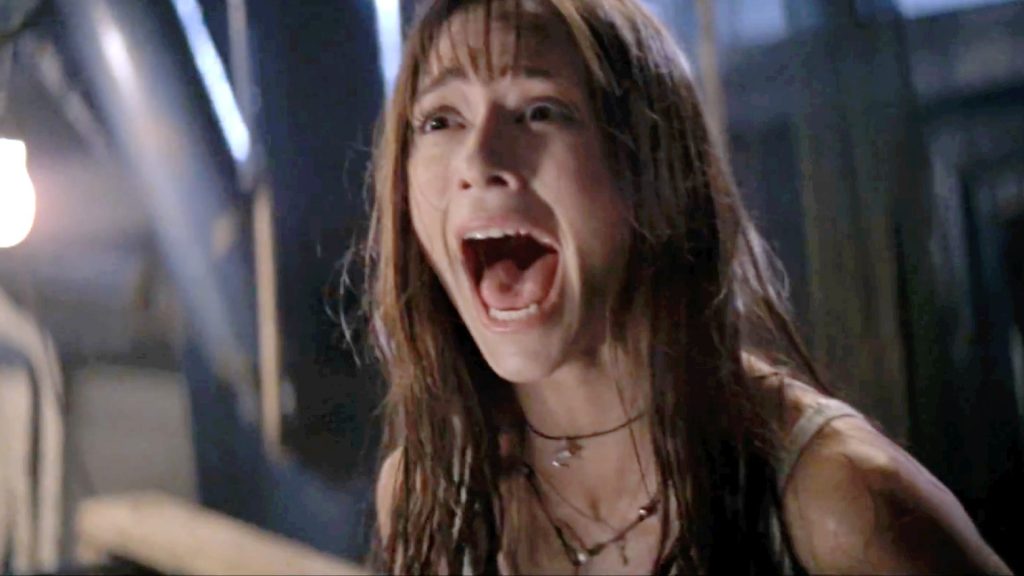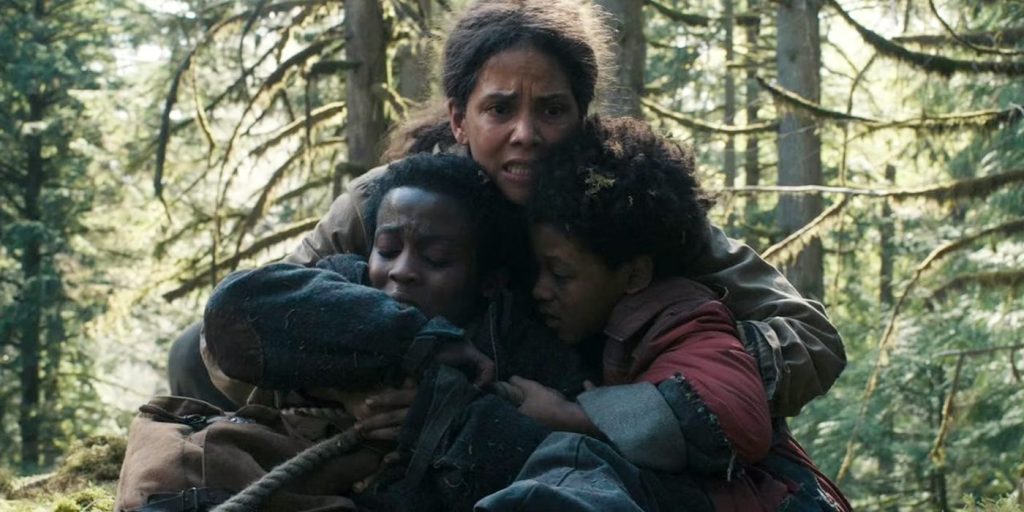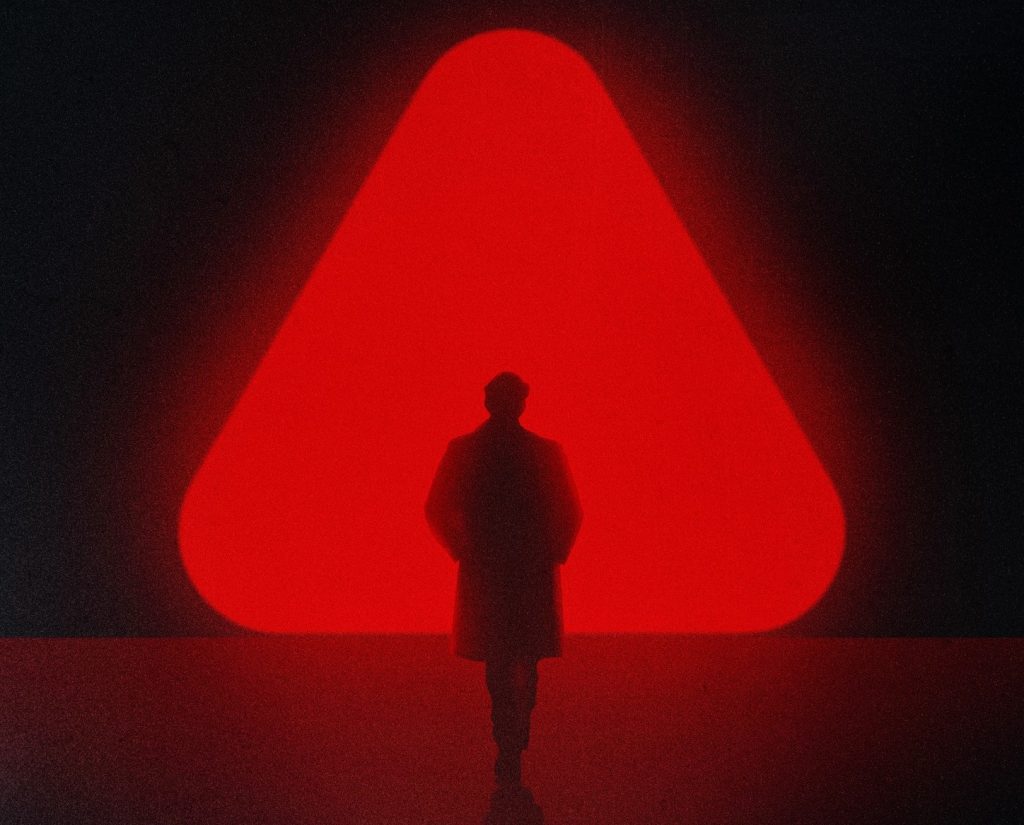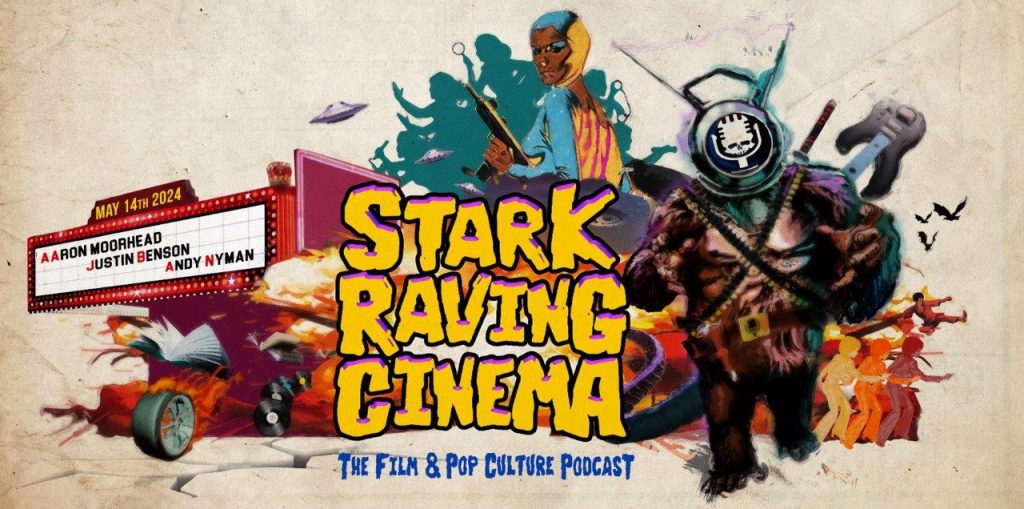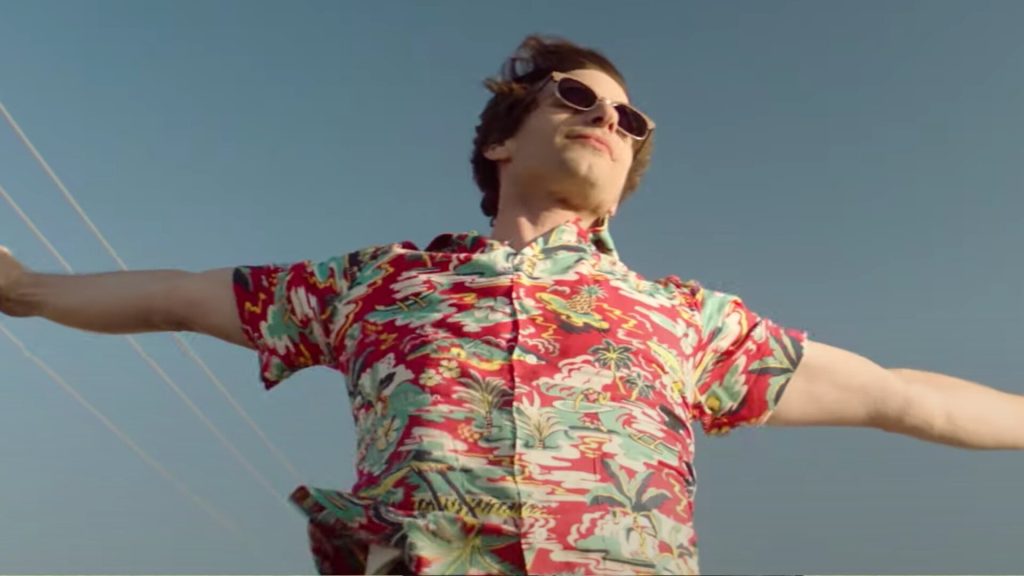 Containment, the edgy and claustrophobic debut feature from director Neil Mcenery-West has just been released in the UK. The film tells the story of the residents of an anonymous tower block who find themselves sealed inside the building as mysterious figures in Hazmat suits prowl the grounds and the stairwells. The residents find themselves fighting for their lives and their freedom and before long they’re forced to make terrible decisions as their situation goes from bad to worse… STARBURST caught up with Neil Mcenery-West to find out more about his striking and disturbing cinematic calling card…
Containment, the edgy and claustrophobic debut feature from director Neil Mcenery-West has just been released in the UK. The film tells the story of the residents of an anonymous tower block who find themselves sealed inside the building as mysterious figures in Hazmat suits prowl the grounds and the stairwells. The residents find themselves fighting for their lives and their freedom and before long they’re forced to make terrible decisions as their situation goes from bad to worse… STARBURST caught up with Neil Mcenery-West to find out more about his striking and disturbing cinematic calling card…
STARBURST: Tell us a little bit about your background and how you got into directing.
Neil Mcenery-West: I’ve been making short films for several years since my late teens in the late nineties. I went to university, worked in TV for a little while and it was actually in about 2003 that I started working on a short film which was made before Containment and that pretty much led to Containment. It was called Undertow and it took five or six years to make and then off the back of that we were able to get on board with the producer and our initial investor for Containment. Undertow was designed to hopefully be enough to convince someone to back a bigger project, but it was quite similar in style but much more art-house than Containment but it was a similar notion in that it was a slightly dystopian vision, very character based so it was natural lead-on in some respects. Containment was in development for some time, it took us quite a while to get it to a place where we were all really happy with it.
The idea for Containment was yours, but the script was written by David Lemon. How did you come to work with David and how much of the process which led to the script was collaborative?
I met David through Christine Harland, who was the first producer on board with the film. She knew David and she recommended him so we met up and hit it off straight away and it went from there really. He’d made Faintheart which was more of a comedy and I think he was looking to do something which was more in this genre because it was an area he was really interested in as well. The original premise of the story was very simple. David and I worked very closely in developing the story together. We’d just meet up a lot and spit-ball ideas and then he’d frame them into an outline and then we’d meet up again, take them all apart and say ‘Why don’t we do this here and this here’ so that part was very collaborative. David was the sole writer so once we’d locked the story down he’d go away and write the script and then we’d meet up and I’d have some notes to go through on things I thought were working well or not so well and we’d talk about it and then he’d go away again and rewrite. It was a really nice process, he’s such fun to work with and even though it took a few years it was an enjoyable experience.
Containment is the latest in a line of ‘tower block’ thrillers such as Comedown and Tower Block. Were you familiar with those films and did you make a conscious effort to try to do something different within that subgenre?
I was aware of them but I’ve not actually seen most of them. The only tower block film I’ve seen recently was Attack the Block, which I loved. I was aware of the other two but I’ve still not seen them actually so I’m not sure how similar or different they might be. In terms of the story probably the biggest influence for me was Lord of the Flies which I liked thematically because I think it’s terrifying because of the children; you have the notion of them being innocent but their violence is so bluntly and psychologically portrayed that that’s where the real horror comes from. I like the idea of doing that, not with a group of children obviously but with ordinary people who you can identify with, people who make horrible, abhorrent choices because of the situation they’re in. The tower block idea came about by accident because I’d wanted to make a film in a tower block for years because I think it’s such a bizarre life, living in a tower block, because you’re isolated and yet also part of a very big community, cut off from one another and yet completely on top of each other. JG Ballard’s High Rise was another influence although obviously that’s more about class struggle.
For a first-time director you’ve managed to land an impressive cast for the movie with the likes of Lee (Catherine Tate Show, EastEnders) Ross, Sheila (Benidorm, Doctor Who) Reid and Louise (Sherlock) Brearley in the main roles. How involved were you with the casting?
We had two really amazing casting directors – Lucy Jenkins and Sooki McShane – who made a lot of the recommendations of actors who ended up in the film and to be perfectly honest although I had some initial thoughts I was fairly blind going in, I wasn’t sure who we should have in this. We had a couple of ideas for the leading character but apart from that it was quite vague but Lucy and Sooki were great at guiding us. They put Lee’s name forward for the ‘leading man’ role of Mark and they really pushed for Andrew Leung (hot-head resident Sergei) and he’s great because when you meet him he’s the nicest person in the world, he’s so gentle and he came in and recorded a take for us and it was such a transformation. I wasn’t 100% sure at first but watching it again and talking to Lucy and Sooki I was totally convinced that he was the best choice for the part. It was much the same with a lot of the others. Gabriel Senor who plays the boy Nicu was actually a recommendation from our line producer Sarah Senior who’d worked with him before and again he was an amazing find, a complete natural. He’s a complete professional and the nicest, most patient kid you could imagine because he’s older than he looks on screen; he was fourteen when we shot the film so he was playing younger. We were lucky, it was great cast, they were all really good which was so important for this film because it’s such a character-driven piece.
How daunting did you find it directing your first feature film on such a fairly large scale?
Once we got into pre-production everything happened so fast I didn’t really have much time to think about it. The day before we started shooting when I got to Southampton and walked on set and everyone was milling around and dressing it and I saw the cast, that was quite daunting and that’s when it felt completely real. But for me the most daunting aspect wasn’t so much working with the big crew but working with such a big cast on such a big schedule for a first feature. The original story was carefully designed to have one main character and a couple of subsidiary characters and it was actually David who brilliantly decided to bring this whole group into it because it would add a lot more conflict. The original story was a little more abstract, more art-house and he said ‘No, let’s get a big group together because that’ll be much more interesting’ which was great but it moved it away from my original plan which was to make a debut feature with a couple of actors who I’d have a bit of time to spend really working with. Suddenly there were eight or nine people in every scene and that was pretty daunting. But it was a great cast and crew which made all the difference. Everyone felt very supportive even though we went a bit cabin fever-ish by the end of the shoot. Once you’re shooting you’re running on adrenalin and you don’t have much time to stop and think about it; almost from day one you’re running behind on something and you’re busy playing catch-up.
Presumably filming on location in Southampton must have brought its own very particular set of problems?
We shot it on location in an inhabited set of tower blocks which was a challenge but not as much as we thought it would be. The residents in the building were actually incredibly accommodating which was a huge relief because we didn’t really know what to expect. We actually shot the film on the first floor so the flat is actually on the first floor and not much higher up the building as it’s supposed to be. Bizarrely, of all the special effects in the movie the main one is when you’re looking out of the window because obviously it looks like you’re on the tenth or eleventh floor but that’s because the perspective was done completely in post-production. We were right by the courtyard and we had everyone above us and we thought it might be a nightmare for sound with people wanting to interfere, but people were really amazing considering we took over their block for three weeks, especially when we took over their courtyard with the tents and the Hazmats – people were very helpful. The flat is actually smaller than it looks on film, it was pretty claustrophobic to be in there with a full crew and the cast but that helped add to the tension. It was a real challenge for our cinematographer Arthur Mulhern because it was such a confined space he didn’t want to have any lights on the floor. I told him I wanted to have 360-degree rotational possibilities with the camera so I could literally pan around the whole room if I wanted to. It was a nightmare for him because it’s such a small space so there was nowhere to hide the lights and he managed to light the room by a combination of lights outside the windows with really big strong 2Ks shining through the window and then utilising a really small source light and windows within the flat to create shadows and contrast which was amazing. We also wanted a really stylised look particularly as it turns to night and you get the sense of really high contrast shadows and the building almost becoming abstract in its colours and the way it looks. The building itself we were very lucky with because it adds a huge amount to the feel of the film; it’s a great set of flats.
The film pulls off the difficult feat of being horrific and troubling without resorting to extreme violence and buckets of gore. Was this an intentional creative choice?
Absolutely. The focus was always to make it psychological horror rather than graphic horror. For me the horror is really in the choice the characters have to make and the implications that those choices have more than specific moments of violence or anything like that. It’s kind of like an emotional and psychological violence which is the key to what’s going on and that was definitely the focus and that helped us steer it away from the dangerous potential of it becoming a zombie movie which we were always aware of and which we didn’t want it to become. Even when an angry mob breaks in we wanted to keep their humanity so it didn’t just feel like it was teetering into Dawn of the Dead territory.
Without giving too much away for those who have yet to see the film, the ending is extremely bleak. Was a downbeat ending something you were particularly keen on?
I quite like downbeat endings myself and it felt very apt for this story. The ending is an example of how David and I really complement each other quite well because I have a tendency towards the darker elements and he tends to pull back towards some of the lighter elements. We talked about the ending so much because he was determined to get some hope in there which I think is important but I didn’t want to compromise it by becoming too upbeat and I wanted to maintain that sense of where the story was going which is that this is not going to end well which is the mood that we have throughout. It ended up being a bit of a balancing act.
How do you feel now the film, which has already been released in the USA, is about to meet its UK public?
Apprehensive! It’s been predominantly well-received which is lovely particularly because you work on a film for so long your biggest hope is that people will enjoy it and embrace it and like it and when they do that’s tremendously rewarding. But we’re getting the reviews in – STARBURST was one of the first proper mainstream press reviews – and it was a relief to have the first few positives but it’s one of those things where you’re so focussed for so long that I genuinely have no idea how people will take it so I’m hoping they’ll take it well. It’s always great when people enjoy it and get what we were trying to do with it. But it’s still impossible not to be apprehensive!
Containment is on limited release now in the UK and arrives on DVD on October 5th.

